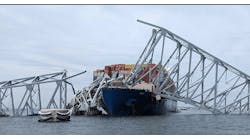I concluded a recent blog about WMS implementations saying that the most important determinant of success isn't the package but the people. I'd expect most end users to stand up and salute that statement, but was pleasantly surprised to hear from the owner of a material handling system integrator who has dedicated his career to making warehouse, management and systems work in harmony. It wasn't always that easy, because some customers treat a WMS implementation like the purchase of a heavily customized car. “Call me when it's ready, hand me the keys and I'll be on my way—never mind about my driving habits and maintenance regimen.” The later realization that WMS care and feeding required a bit more than that often resulted in an expensive add-on to the project.
“We reckoned that at project handover from sales to project management we stood to lose up to 5% in profitability right there,” this integrator wrote. “If you enter into a semi adversarial relationship with your client where information withholding is power, watch out! A lot of any system is the internal dynamics where people have to change their roles and either give up or accept new roles. They usually do not like that and it causes immense problems of non co-operation.”
He found a better approach in many projects that also included material handling automation, like automated storage and retrieval systems and automated picking. His people teamed with the client's staff at the very start of a project.
“Everybody was a shareholder in the new enterprise and they knew when the ship sailed they would be the crew,” this integrator added. “They had many successful suggestions that we had not thought of, coming from a manufacturing standpoint, while they were looking at it from a maintenance and operational viewpoint.”
This democratic (small “d”) approach to systems integration is entering the business mindset as supply chain management curricula in colleges and universities are developed to get young minds set for careers. The growing interest in supply chain as a career, combined with the growing affordability of supply chain technology, makes Tan Miller, director of the global supply chain management program at Rider University, optimistic about his students' futures. Participating in MH&L's Editorial Advisory Board Roundtable, which will be featured in our September issue, Miller thinks the business community and the vendor community are on a converging path to success.
“Ten years ago a really small to moderate size company couldn't think about doing transportation planning using some commercial package because those packages cost a million dollars or two,” Miller said. Now with software as a service and other technology that's coming down the road on the IT side, the technology will be more available to a much greater population. This technology will continue to improve as will education on both the corporate and supply sides, so I'm optimistic about the future.”
The fact that Miller entered academia out of the corporate supply chain world gives his optimism extra credibility—as does his refusal to cop out by modifying optimistic with “cautiously.”
Related Editorial:
Many Retailers Say They've Never Even Heard of Nearshoring


